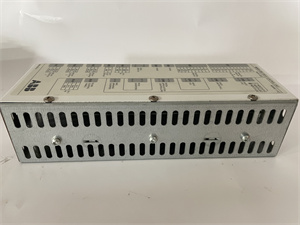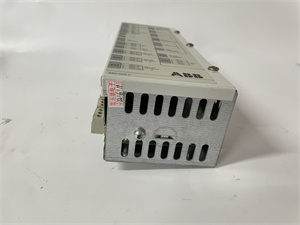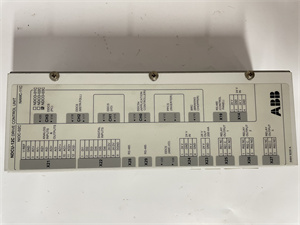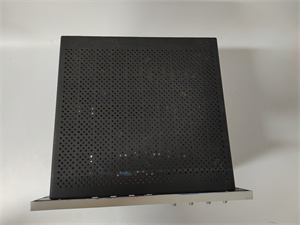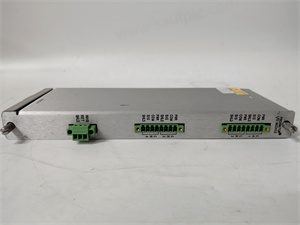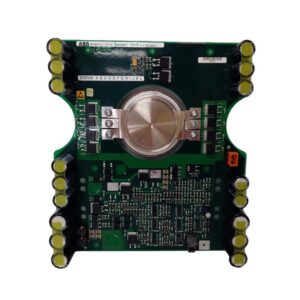Description
1. Product Description
The ABB NDCU-12C/NDCU-12CK is a high-reliability analog input/output and communication interface module designed for industrial automation systems, particularly in DCS (Distributed Control System) environments. Built for rugged industrial settings, the NDCU-12C/NDCU-12CK offers precise signal conditioning (4–20mA/0–10V inputs), redundant communication (Modbus RTU/Profibus-DP), and advanced safety features (3kV isolation, overvoltage protection). With a compact design (120x70x43mm for NDCU-12C; 240x200x30mm for NDCU-12CK) and IP20 rating, it integrates seamlessly into power plants, chemical facilities, and water treatment systems. The module supports real-time data processing, ensuring stable performance in harsh conditions (–10°C to +50°C) while minimizing EMI interference.
2. Key Technical Parameters
| Parameter | NDCU-12C | NDCU-12CK |
|---|---|---|
| Model | ABB NDCU-12C | ABB NDCU-12CK |
| Input Voltage | 24V DC (NDCU-12C); 63V DC (NDCU-12CK) | 24V DC (NDCU-12C); 63V DC (NDCU-12CK) |
| Output Signal | 0–10V DC / 4–20mA (2A max) | 0–10V DC / 4–20mA (2A max) |
| Communication | RS485 (Modbus RTU) | RS485/Profibus-DP (optional) |
| Isolation Voltage | 3kV DC (input/output) | 3kV DC (input/output) |
| Protection Features | Overcurrent, overvoltage, thermal | Overcurrent, overvoltage, thermal |
| Dimensions (WxHxD) | 120x70x43mm | 240x200x30mm |
| Weight | 0.7kg | 1.5kg |
| Operating Temperature | –10°C to +50°C | –10°C to +50°C |
| Application Industries | Power, chemical, water treatment | Oil & gas, metallurgy, machinery |
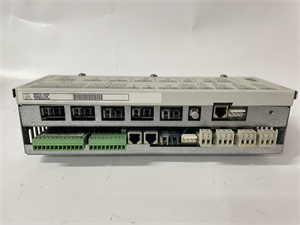
NDCU-12C NDCU-12CK
3. Advantages and Features
- Enhanced Safety: 3kV isolation and SIL2-compliant design prevent system failures in critical applications (e.g., turbine control).
- EMI Resistance: Conformal coating and shielding reduce interference in high-noise environments (tested to IEC 61000-6-2 standards).
- Redundancy Support: NDCU-12CK offers dual-channel communication for fault-tolerant systems, minimizing downtime.
- Compact Design: NDCU-12C is 40% smaller than legacy modules (e.g., Siemens S7-300 AI modules), saving panel space.
- Longevity: MTBF > 80,000 hours (ABB testing), with a 1-year warranty and extended lifecycle support.
4. Application Areas and Case Studies
Industries: Power generation (coal/gas turbines), chemical processing, water treatment, and oil & gas.
典型场景: Analog signal conditioning for pumps, valves, and sensors in DCS systems.
典型场景: Analog signal conditioning for pumps, valves, and sensors in DCS systems.
案例: A German power plant upgraded 50+ NDCU-12C modules in their boiler control system. The modules’ 3kV isolation and redundant communication reduced unplanned outages by 35%, while precise signal conditioning improved turbine efficiency by 2.1%.
5. Competitor Comparison
Compared to similar analog I/O modules:
- Faster Response: 5ms update rate (vs. 10–15ms in generic modules).
- Integrated Redundancy: NDCU-12CK’s dual-channel design eliminates external redundancy modules (saving $300–$500 per unit).
- Wide Voltage Range: Supports 24V/63V DC inputs (vs. single-voltage options in competitors).
- Software Tools: Free ABB System 800xA configuration software (a $1,200 value in third-party tools).
NDCU-12C NDCU-12CK
6. Selection Recommendations
- Functionality: Choose NDCU-12C for basic analog I/O; NDCU-12CK for redundant communication and advanced diagnostics.
- Voltage Compatibility: Match input voltage (24V for NDCU-12C; 63V for NDCU-12CK).
- Environment: Use shielding cables (AWG 22–16) in high-EMI areas; ensure ventilation for continuous 2A output operation.
- Future Expansion: Pair with ABB’s AC800M controllers for scalable DCS networks.
7. Precautions
- Installation: Maintain 15cm separation between signal and power cables; use metal conduits for EMI protection.
- Commissioning: Calibrate input ranges (4–20mA/0–10V) via ABB’s System 800xA wizard; verify loop resistance (<500Ω for 4–20mA).
- Maintenance: Inspect connectors biannually; replace modules every 10 years (duty-cycle dependent).
- Safety: Disconnect power before servicing; follow ESD protocols (ESD sensitivity: HBM Class 2).

